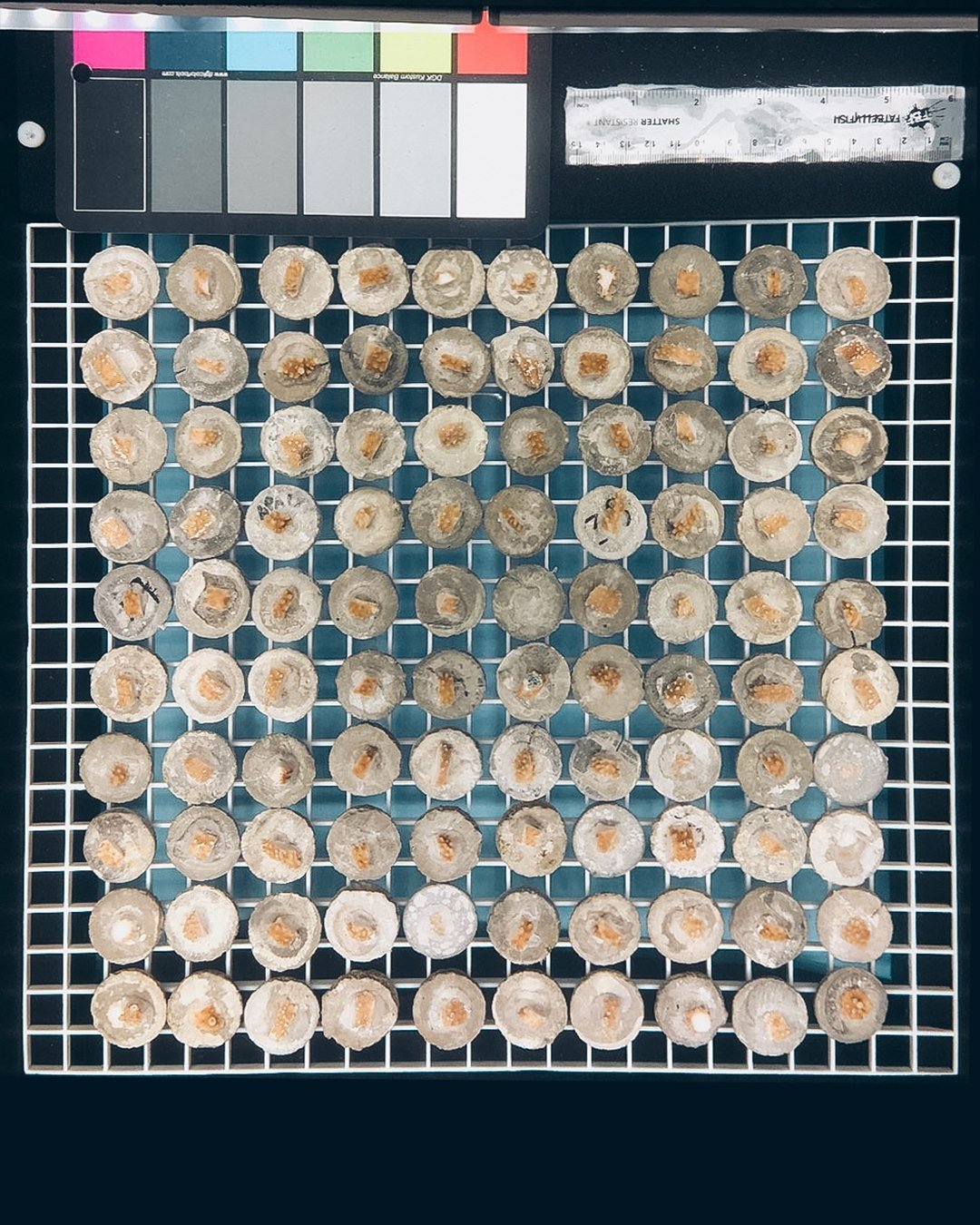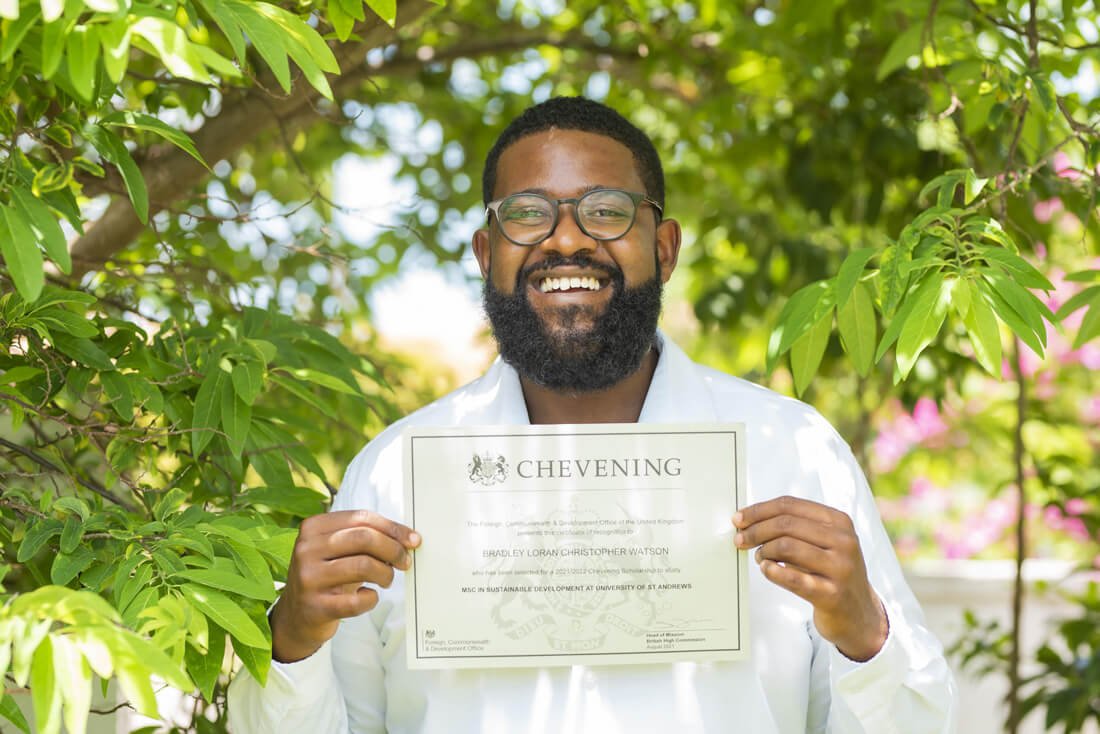Grand Bahama-based coral restoration farm lands inaugural £1 million Earthshot Prize
FREEPORT, GRAND BAHAMA — Transmuting the country from victim to actor at the forefront of the global climate race, the principals of Coral Vita – the world’s first land-based commercial coral reef restoration farm – have won the UK’s inaugural £1 million Earthshot Prize.
While scientists estimate the world’s reef populations have been slashed in half — it is believed that in The Bahamas about 80 percent of the coral reefs have died, according to Coral Vita co-founder Sam Teicher in an interview earlier this year.
Coral Vita received the “Revive our Oceans Earthshot” for its innovative approach to coral farming, its land-based method not only grows the organism 50 times faster than traditional methods but improves its resilience to the impact of climate change.
It comes just as the world’s leaders head to Glasgow, Scotland to confront the gap between what countries need to do to address climate change and what they are actually doing at the 2021 United Nations Climate Change Conference — COP26.
And based on new visuals by research firm Climate Central — what’s at stake is literally the land under our feet.

By the numbers, global leaders are tasked with reducing carbon emissions by nearly half by 2030 in order to arrest the rise in the earth’s temperature and in turn, the rise in sea levels.
Prime Minister Philip Davis will lead a delegation to Scotland to participate in climate talks, and hopefully come away with a firm resolve to abandon any prospects of oil drilling — an endeavor that feels criminally antithetical to achieving climate goals.
And yet, Bahamas Petroleum Company (BPC), now renamed Challenger Energy, told its shareholders in August that it was in talks with the Bahamian government to renew its oil drilling licenses.
Meanwhile, in Grand Bahama, the award that has been dubbed the ‘Nobel Prize for environmentalism’ feels more like a reward for Teicher, who reflected on what the win means for him, his partner Gator Halpern and the entire country in an interview with Eyewitness News.

“It’s an absolutely incredible feeling, truly one of the greatest honors of my life,” Teicher said.
“Along with the whole team, we’re so proud. I’m so proud and grateful for my team, all the supporters and advisers over the years, my family and to have this opportunity to tell not only our story but the story of coral reefs and the billion people around the world who depend upon them.
He continued: “We really hope this is an award for us as much as it is the people of The Bahamas and it’s an opportunity again to bring these reefs back to life in an even bigger and better way and I couldn’t be more proud.”
Teicher and Halpern were invited to the country by Rupert Hayward, executive director of The Grand Bahama Port Authority (GBPA), in 2018 with the support of the government.
The pair launched the farm in May 2019 and after a whirlwind summer boasted the growth of 24 native species of coral and traffic of a thousand students and tourists.
“Most Bahamian projects grow two to three, maybe four or five (native species of coral),” Teicher said.
“We then had this incredible opportunity to start working on building out the business pipeline and then Dorian came through.”
The category six hurricane ravaged Grand Bahama in early September 2019, leaving death and destruction in its wake — the hardest hit were rural coastal communities on the eastern side of the island.
“We saw first hand what the climate crisis is like,” Teicher said.
“We spent the next few months just doing humanitarian work in local communities. As soon as the roads opened up we were up in High Rock as far as we could go towards Pelicans point and we actually found one of our tanks about 35 miles away from the farm.”

He continued: “So we really got to see though how coral reefs and mangroves literally saved people’s lives. There were communities in Sweetings Cay and east Grand Bahama, who got the eye of the storm and when we were bringing supplies out there, it was remarkable because the damage was catastrophic but every person that survived — and we really couldn’t believe it, and we asked — and person after person pointed to the mangrove forests that surrounded Sweetings Cay and said it slowed down the storm surge enough for them to get to their neighbor’s house, to get to the second story.”
Teicher said: “Tragically not too far where McLeans Town were, lot of the same styles of buildings but the mangroves are largely gone and the death toll is heartbreaking.”
While Dorian proved to be the first test in resiliency, Teicher and Halpern reopened the facility in March 2020 just in time for the COVID-19 pandemic to puncture not only their plans but bring global engagement grinding to a halt.
Still, the farm pressed on with an exemption from the government allowing them to continue operations on the farm.
Teicher said: “We were able to keep going and really feel, for more ways than one, but particularly feel we got a nice reward for our hard work (on Sunday).

The Earthshot prize was launched by Prince William and Sir David Attenborough with plans to award over £50m within the next decade for solutions to the world’s greatest environmental problems.
The Duke of Cambridge told the BBC that anyone could win the prize, imbuing a sense of optimism and urgency that could lead to innovative solutions to solve the climate crisis.
British High Commissioner to The Bahamas Sarah Dickson traveled to Grand Bahama to present the prize and remarked on the incredible distinction to be selected from a global cohort.
“It’s amazing even to get to be one of the 15 finalists because so many people were entered to win in one of the categories,” Dickson said.
“I think the UK and the Bahamas both have an interest in environmental issues, and it really is something that young people, in particular, are passionate about.”
Dickson noted this year the UK Chevening scholar for The Bahamas is Bradley Watson a former BNT officer who will use his scholarship to study the intersection of sustainability and human rights in Scotland.

“It’s great to see Bradley there, doing environmental science in the year the UK is hosting the COP26 meeting,” she added.
In Grand Bahama, Coral Vita not only serves as a coral production facility but in fact triples as a marine education center and tourist attraction. Its commercial approach ensures its growth is not solely driven by charitable donations and corporate stewardship.
The farm is currently engaged in a coral restoration project by the Government alongside the Grand Bahama Port Authority and GB DEVCO.
According to Teicher, the prize money will go directly to funding the farm’s expansion: investing more into the GB facility by enhancing research and development, adding more tanks, and taking on more restoration projects from “Walkers Cay to New Providence to Eleuthera”.
Teicher said: “Half the world’s reefs are dead sadly, and we’re on track to lose over 90 percent within the next 30 years. So eventually we want our farms within all the 100 countries and territories with reefs. The prize will also let us start launching more farms in more countries as we do the work here in The Bahamas.”
The Earthshot Prize Winners for 2021 are:
- Protect and Restore Nature: The Republic of Costa Rica – A pioneering scheme paying local citizens to restore natural ecosystems that has led to an incredible revival of the rainforest.
- Clean our Air: Takachar, India – A cutting-edge technology to create fuel from agricultural waste and put a stop to the global air problem of crop burning.
- Revive our Oceans: Coral Vita, Bahamas – An innovative approach to coral farming that can help restore our world’s dying coral reefs faster than any traditional method.
- Build a Waste-free World: The City of Milan, Italy – A city-wide initiative that has dramatically cut waste while tackling hunger.
- Fix our Climate: AEM Electrolyser, Thailand/Germany/Italy – An ingenious green hydrogen technology developed to transform how we power our homes and buildings.






